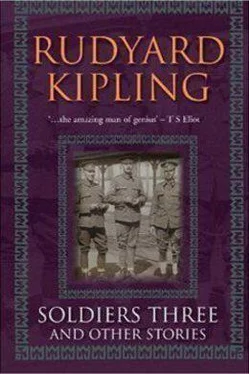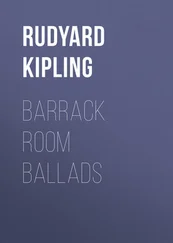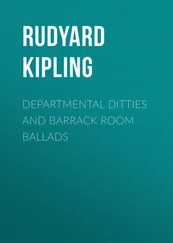Rudyard Kipling - Soldiers Three
Здесь есть возможность читать онлайн «Rudyard Kipling - Soldiers Three» весь текст электронной книги совершенно бесплатно (целиком полную версию без сокращений). В некоторых случаях можно слушать аудио, скачать через торрент в формате fb2 и присутствует краткое содержание. Год выпуска: 2014, Издательство: epubBooks Classics, Жанр: Классическая проза, на английском языке. Описание произведения, (предисловие) а так же отзывы посетителей доступны на портале библиотеки ЛибКат.
- Название:Soldiers Three
- Автор:
- Издательство:epubBooks Classics
- Жанр:
- Год:2014
- ISBN:нет данных
- Рейтинг книги:5 / 5. Голосов: 1
-
Избранное:Добавить в избранное
- Отзывы:
-
Ваша оценка:
- 100
- 1
- 2
- 3
- 4
- 5
Soldiers Three: краткое содержание, описание и аннотация
Предлагаем к чтению аннотацию, описание, краткое содержание или предисловие (зависит от того, что написал сам автор книги «Soldiers Three»). Если вы не нашли необходимую информацию о книге — напишите в комментариях, мы постараемся отыскать её.
Soldiers Three — читать онлайн бесплатно полную книгу (весь текст) целиком
Ниже представлен текст книги, разбитый по страницам. Система сохранения места последней прочитанной страницы, позволяет с удобством читать онлайн бесплатно книгу «Soldiers Three», без необходимости каждый раз заново искать на чём Вы остановились. Поставьте закладку, и сможете в любой момент перейти на страницу, на которой закончили чтение.
Интервал:
Закладка:
When the noise of the drums ceased, no one in the white room spoke for a time. 'The first tazia has moved off,' said Wali Dad, looking to the plain.
'That is very early,' said the man with the pince–nez .
'It is only half–past eight.' The company rose and departed.
'Some of them were men from Ladakh,' said Lalun, when the last had gone. 'They brought me brick–tea such as the Russians sell, and a tea–urn from Peshawur. Show me, now, how the English Memsahibs make tea.'
The brick–tea was abominable. When it was finished Wali Dad suggested going into the streets. 'I am nearly sure that there will be trouble to–night,' he said. 'All the City thinks so, and Vox Populi is Vox Dei , as the Babus say. Now I tell you that at the corner of the Padshahi Gate you will find my horse all this night if you want to go about and to see things. It is a most disgraceful exhibition. Where is the pleasure of saying " Ya Hasan, Ya Hussain ," twenty thousand times in a night?'
All the processions—there were two and twenty of them—were now well within the City walls. The drums were beating afresh, the crowd were howling ' Ya Hasan! Ya Hussain! ' and beating their breasts, the brass bands were playing their loudest, and at every corner where space allowed, Muhammadan preachers were telling the lamentable story of the death of the Martyrs. It was impossible to move except with the crowd, for the streets were not more than twenty feet wide. In the Hindu quarters the shutters of all the shops were up and cross–barred. As the first tazia , a gorgeous erection ten feet high, was borne aloft on the shoulders of a score of stout men into the semi–darkness of the Gully of the Horsemen, a brickbat crashed through its talc and tinsel sides.
'Into thy hands, O Lord?' murmured Wali Dad profanely, as a yell went up from behind, and a native officer of Police jammed his horse through the crowd. Another brickbat followed, and the tazia staggered and swayed where it had stopped.
'Go on! In the name of the Sirkar , go forward!' shouted the Policeman; but there was an ugly cracking and splintering of shutters, and the crowd halted, with oaths and growlings, before the house whence the brickbat had been thrown.
Then, without any warning, broke the storm—not only in the Gully of the Horsemen, but in half a dozen other places. The tazias rocked like ships at sea, the long pole–torches dipped and rose round them while the men shouted: 'The Hindus are dishonouring the tazias! Strike! Strike! Into their temples for the faith!' The six or eight Policemen with each tazia drew their batons, and struck as long as they could in the hope of forcing the mob forward, but they were overpowered, and as contingents of Hindus poured into the streets, the fight became general. Half a mile away where the tazias were yet untouched the drums and the shrieks of ' Ya Hasanl Ya Hussain! ' continued, but not for long. The priests at the corners of the streets knocked the legs from the bedsteads that supported their pulpits and smote for the Faith, while stones fell from the silent houses upon friend and foe, and the packed streets bellowed: ' Din! Din! Din! ' A tazia caught fire, and was dropped for a flaming barrier between Hindu and Musalman at the corner of the Gully. Then the crowd surged forward, and Wali Dad drew me close to the stone pillar of a well.
'It was intended from the beginning!' he shouted in my ear, with more heat than blank unbelief should be guilty of. 'The bricks were carried up to the houses beforehand. These swine of Hindus! We shall be gutting kine in their temples to–night!'
Tazia after tazia , some burning, others torn to pieces, hurried past us and the mob with them, howling, shrieking, and striking at the house doors in their flight. At last we saw the reason of the rush. Hugonin, the Assistant District Superintendent of Police, a boy of twenty, had got together thirty constables and was forcing the crowd through the streets. His old gray Police–horse showed no sign of uneasiness as it was spurred breast–on into the crowd, and the long dog–whip with which he had armed himself was never still.
'They know we haven't enough Police to hold 'em,' he cried as he passed me, mopping a cut on his face. 'They know we haven't! Aren't any of the men from the Club coming down to help? Get on, you sons of burnt fathers!' The dog–whip cracked across the writhing backs, and the constables smote afresh with baton and gun–butt. With these passed the lights and the shouting, and Wali Dad began to swear under his breath. From Fort Amara shot up a single rocket; then two side by side. It was the signal for troops.
Petitt, the Deputy Commissioner, covered with dust and sweat, but calm and gently smiling, cantered up the clean–swept street in rear of the main body of the rioters. 'No one killed yet,' he shouted. 'I'll keep 'em on the run till dawn! Don't let 'em halt, Hugonin! Trot 'em about till the troops come.'
The science of the defence lay solely in keeping the mob on the move. If they had breathing–space they would halt and fire a house, and then the work of restoring order would be more difficult, to say the least of it. Flames have the same effect on a crowd as blood has on a wild beast.
Word had reached the Club and men in evening–dress were beginning to show themselves and lend a hand in heading off and breaking up the shouting masses with stirrup–leathers, whips, or chance–found staves. They were not very often attacked, for the rioters had sense enough to know that the death of a European would not mean one hanging but many, and possibly the appearance of the thrice–dreaded Artillery. The clamour in the City redoubled. The Hindus had descended into the streets in real earnest and ere long the mob returned. It was a strange sight. There were no tazias —only their riven platforms—and there were no Police. Here and there a City dignitary, Hindu or Muhammadan, was vainly imploring his co–religionists to keep quiet and behave themselves—advice for which his white beard was pulled. Then a native officer of Police, unhorsed but still using his spurs with effect, would be borne along, warning all the crowd of the danger of insulting the Government. Everywhere men struck aimlessly with sticks, grasping each other by the throat, howling and foaming with rage, or beat with their bare hands on the doors of the houses.
'It is a lucky thing that they are fighting with natural weapons,' I said to Wali Dad, 'else we should have half the City killed.'
I turned as I spoke and looked at his face. His nostrils were distended, his eyes were fixed, and he was smiting himself softly on the breast. The crowd poured by with renewed riot—a gang of Musalmans hard–pressed by some hundred Hindu fanatics. Wali Dad left my side with an oath, and shouting: ' Ya Hasan! Ya Hussain! ' plunged into the thick of the fight where I lost sight of him.
I fled by a side alley to the Padshahi Gate where I found Wali Dad's house, and thence rode to the Fort. Once outside the City wall, the tumult sank to a dull roar, very impressive under the stars and reflecting great credit on the fifty thousand angry able–bodied men who were making it. The troops who, at the Deputy Commissioner's instance, had been ordered to rendezvous quietly near the fort, showed no signs of being impressed. Two companies of Native Infantry, a squadron of Native Cavalry and a company of British Infantry were kicking their heels in the shadow of the East face, waiting for orders to march in. I am sorry to say that they were all pleased, unholily pleased, at the chance of what they called 'a little fun.' The senior officers, to be sure, grumbled at having been kept out of bed, and the English troops pretended to be sulky, but there was joy in the hearts of all the subalterns, and whispers ran up and down the line: 'No ball–cartridge—what a beastly shame!' 'D'you think the beggars will really stand up to us?' ''Hope I shall meet my money–lender there. I owe him more than I can afford.' 'Oh, they won't let us even unsheathe swords.' 'Hurrah! Up goes the fourth rocket. Fall in, there!'
Читать дальшеИнтервал:
Закладка:
Похожие книги на «Soldiers Three»
Представляем Вашему вниманию похожие книги на «Soldiers Three» списком для выбора. Мы отобрали схожую по названию и смыслу литературу в надежде предоставить читателям больше вариантов отыскать новые, интересные, ещё непрочитанные произведения.
Обсуждение, отзывы о книге «Soldiers Three» и просто собственные мнения читателей. Оставьте ваши комментарии, напишите, что Вы думаете о произведении, его смысле или главных героях. Укажите что конкретно понравилось, а что нет, и почему Вы так считаете.












